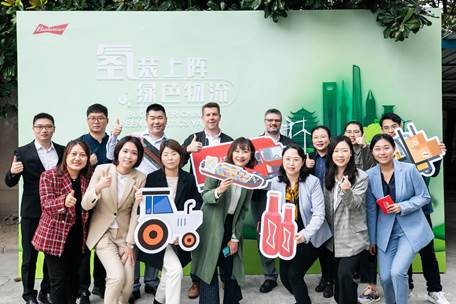 Home NEWS & MEDIA Budweiser China Deploys Hydrogen FCV Trucks And Unlocked New Episode of Green Logistics
Home NEWS & MEDIA Budweiser China Deploys Hydrogen FCV Trucks And Unlocked New Episode of Green Logistics
October 28, the second “Budweiser China Green Logistics VA Day” was successfully held in Shanghai. Budweiser announced a series of new initiatives to advance its Green Logistics in China, including the roll-out of Hydrogen FCV trucks across its value chain.
At the convention, Jan Clysner, VP Procurement & Sustainability, Bud APAC; Rodrigo Moraes Rodrigues, VP Logistics, Bud APAC; Song Su from World Resources Institute; Gu Chenxi, Deputy Secretary-General of Shanghai Logistics Association; Zhong Wu, Secretary of Cargo TST Department in Shanghai Road Transportation Development Center; Dr. Yu Huajun from Fudan University; and corporate partners from Bestpath, Cardinal, etc. jointly witnessed another key milestone on Budweiser China’s journey of green logistics.
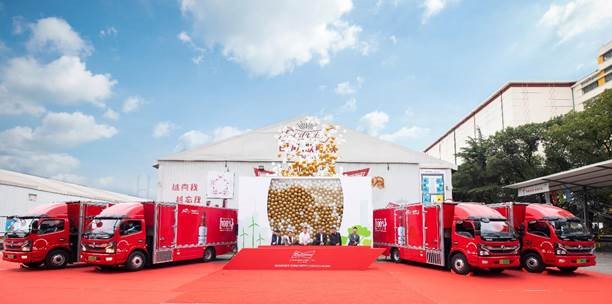
Jan Clysner, VP Procurement & Sustainability, Bud APAC, expressed his great confidence in the new initiatives: “At Budweiser, sustainability is not just part of our business; it is our business. Back in 2018, Budweiser announced its 2025 Sustainability Goals, which take climate action as a key pillar. We take enormous pride in taking the lead to deploy Hydrogen FCVs throughout our logistics network, which demonstrates Budweiser’s determination to achieve its climate commitments by reducing CO2 emissions.”
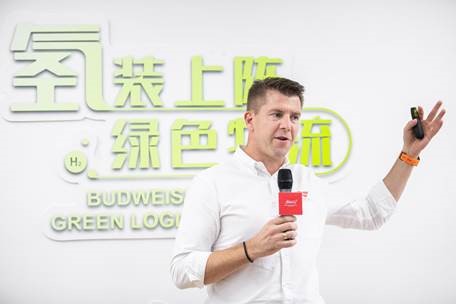
During the FCV kick-off ceremony, Budweiser China announced four FCV trucks and signed a new commitment with its suppliers, achieving a win-win with mission to green logistics by technology. During the convention, Song Su and Dr. Yu Huajun discussed the latest studies on green logistics. Other Industry experts, such as BYD, Unilever, IKEA, Rite Hite and Cardinal, shared their experience from the practice.
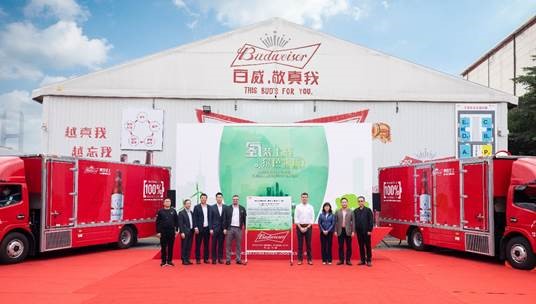
Since 2014, Budweiser China has embarked on its revolutionary journey of green logistics. Previously, Budweiser China has already been working to curb CO2 emission on the logistics end through means such as deploying alternative energy vehicles and electric forklifts, upsizing truck capacities, reducing shipping distance and shifting from road to rail transportation. In 2019, Budweiser China already achieved 100% use of electric forklifts at its distribution warehouses. This year, the brewer has deployed more than 200 vehicles of alternative energy, such as LNG trucks, EV trucks and the newly-deployed Hydrogen FCV trucks.
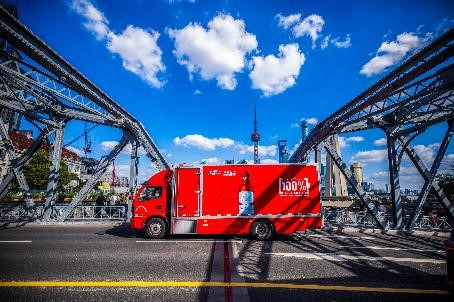
Song Su commented: “As a reputed brewer, Budweiser firmly pursues ideas of green Logistics, and continues to adopt innovative solutions aimed at curbing carbon emissions. This sets a positive example for other sectors and companies as well.”
Budweiser is committed to reduce its carbon emissions across the full supply chain by 25% by 2025. As part of this overall commitment, China Logistics will reduce its carbon emissions by 40%, a reduction of 70.266 tons of carbon emissions.
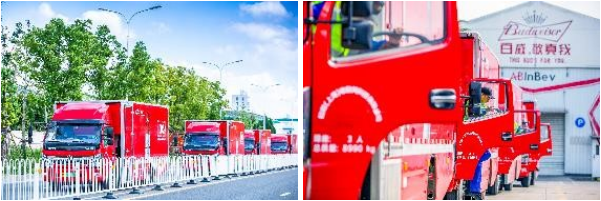
Rodrigo Rodrigues, VP Logistics of Budweiser APAC, commented: “At Budweiser, we proactively embrace innovation to explore new approaches to achieve green logistics, adopt new technologies to drive carbon reduction, and push the development of clean energy sources. At the same time, we own heart-felt gratitude to our partners, because it is their shared dedication that has made possible the pioneering technology of Hydrogen FCV.”
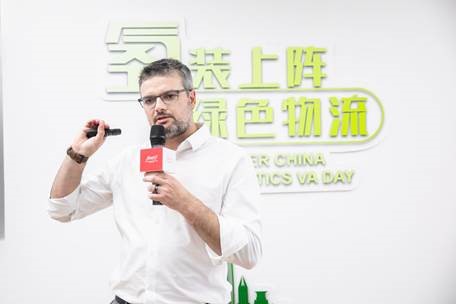
As a world-leading beer company, Budweiser sees sustainability as its business, passionately cares for the environment, and strives to build a healthier planet, honoring its dream to bring people together for a better world.
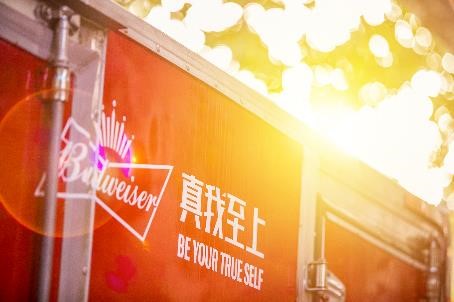
Loud cheers to all the partners! Let’s unlock the bright journey with Green Logistics in the future!
